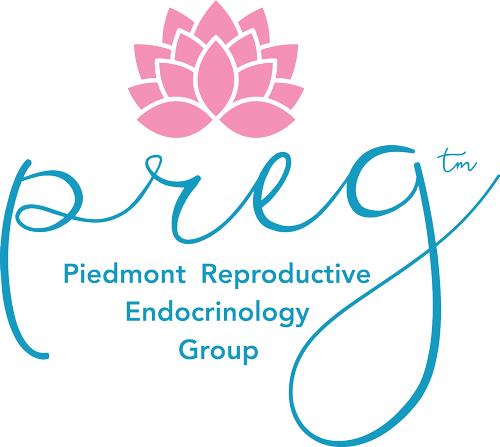Starting the journey to parenthood is an exciting yet intimidating experience, particularly for those seeking in vitro fertilization (IVF). Although the process can feel daunting, following the right steps before treatment can greatly improve your chances of success. Here’s our detailed guide to preparing for pregnancy and the key actions to take prior to beginning IVF.
1. Consult with a Fertility Specialist
The first step in your IVF journey should be consulting with a PREG fertility specialist. This initial appointment is crucial for assessing your reproductive health. Our specialist will conduct a thorough evaluation, including blood tests and imaging studies like ultrasounds, to identify any underlying issues affecting your fertility. Understanding your unique circumstances is vital. Based on the evaluation, our PREG fertility specialist will recommend a personalized treatment plan. This is also an excellent opportunity to ask questions about the IVF process, including what to expect, potential risks, and success rates.
2. Understand Your Menstrual Cycle
A good understanding of your menstrual cycle can provide valuable insights into your fertility. Track your cycle length and any symptoms you experience. Utilize apps or journals to document changes in your body, including ovulation signs. Being aware of your cycle helps you recognize your fertile windows and prepare for treatment. If you’ve been struggling with irregular cycles, discussing this with your PREG fertility specialist can help in tailoring your IVF approach.
3. Optimize Your Health
Preparing your body for pregnancy is essential for improving your chances of IVF success. Here are our top health-focused tips to consider.
Nutrition: Eat a balanced diet that includes whole foods, fruits, vegetables, lean proteins, and healthy fats. Nutrient-rich foods can improve your wellness and fertility. Consulting a nutritionist who specializes in fertility can provide tailored dietary advice.
Weight Management: Achieving a healthy weight is important. Both underweight and overweight conditions can disrupt hormone levels and ovulation. If you need to make adjustments, focus on gradual, realistic changes that are attainable in your daily life.
Exercise: Regular physical activity promotes overall health and vitality. Engage in moderate exercise, such as walking, swimming, or yoga. While staying active is needed, avoid excessive workouts, as they can negatively affect fertility.
Prenatal Vitamins: Begin taking prenatal vitamins that contain folic acid, which is beneficial for preventing neural tube defects. These vitamins support your general well-being and prepare your body for pregnancy.
4. Address Underlying Medical Conditions
If you have existing medical conditions, such as diabetes, polycystic ovary syndrome (PCOS), or thyroid disorders, work closely with your healthcare provider to manage these conditions effectively. Proper control of your health can enhance your chances of a successful pregnancy.
5. Evaluate Your Lifestyle
Your lifestyle choices can significantly influence your fertility. Here are some important factors to keep in mind.
Avoid Tobacco and Excessive Alcohol: Smoking and heavy drinking are detrimental to fertility in both men and women. Quitting smoking and reducing alcohol intake can improve your chances of conception.
Limit Caffeine: Some studies suggest that high caffeine intake may impact fertility. Consider reducing your consumption to moderate levels, especially during the IVF process.
Stress Management: High stress levels can interfere with ovulation and overall fertility. Engage in stress-reducing activities such as yoga, meditation, or mindfulness practices. Finding healthy coping mechanisms is key during this emotional journey.
6. Educate Yourself About IVF
Knowledge is power. Take time to learn about the IVF process, including potential risks, benefits, and emotional aspects involved. Resources such as books, online articles, and support groups can provide valuable information and support. Joining online forums or local support groups allows you to connect and learn about IVF with others who have similar experiences.
7. Build a Support System
Going through IVF can be an emotional rollercoaster. Surround yourself with a supportive network of friends and family who understand what you’re going through. Whether it’s discussing your feelings or simply enjoying distractions together, having support can make a huge difference. Don’t hesitate to seek professional counseling with PREG if you find it challenging to cope with the emotional ups and downs of the IVF process. A therapist experienced in fertility issues can provide invaluable assistance.
8. Financial Planning
IVF can be a significant financial commitment. Research the costs involved, including medications, procedures, and potential additional fees. Check if your insurance covers any aspects of treatment and explore financing options or grants available for fertility treatments. Understanding the financial landscape can reduce stress and help you plan accordingly.
Your Path Forward
Preparing for pregnancy, especially when considering IVF, involves careful planning and proactive health management. By following our steps, you can enhance your chances of a successful outcome and approach this journey with confidence. Remember that each person’s path to parenthood is unique and taking the time to prepare can make a meaningful difference in your experience. To learn more about IVF and fertility services in the Carolinas, contact Piedmont Reproductive Endocrinology Group today.






